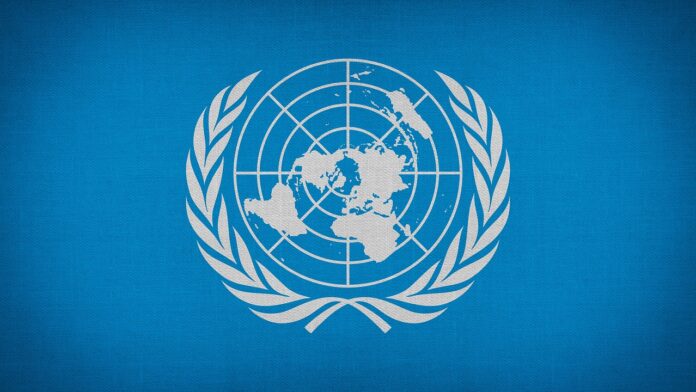Introduction
For decades, African nations have been active participants in the United Nations, attending meetings, contributing peacekeepers, and advocating for global cooperation. Yet, as the 21st century progresses, a growing chorus of African leaders and scholars argue that the current structure of the United Nations—particularly the Security Council—renders African participation largely symbolic and, in many respects, senseless. This article explores the deep-rooted structural inequities, historical injustices, and persistent marginalization that have led to such a conclusion.
The UN Security Council: A Legacy of Exclusion
Historical Foundations and Structural Inequities
The UN Security Council (UNSC), established in 1945, was designed in a post-World War II context that reflected the geopolitical realities and power hierarchies of that era. Five nations—the United States, United Kingdom, France, Russia, and China—were granted permanent seats and veto power, effectively giving them control over the most consequential decisions in international peace and security. Africa, with its 54 countries and a population exceeding 1.4 billion, remains the only continent without a permanent seat or veto power in the Council123.
This exclusion is not merely a matter of symbolism. It is a structural flaw that perpetuates a global order where decisions affecting Africa are made without meaningful African input or consent. As a result, African nations are often relegated to the role of passive recipients of externally imposed mandates, rather than active shapers of their own destinies14.
A Disproportionate Agenda, Minimal Influence
Ironically, Africa is the subject of the majority of the UNSC’s agenda. Over 80% of Security Council resolutions in the past decade have concerned African conflicts, yet none have resulted in lasting peace or effective solutions2. The continent’s humanitarian crises, security challenges, and development needs are routinely discussed, but African voices remain muted in the corridors of power where decisions are finalized254.
The Power Imbalance: Veto and “Pen-Holding”
Veto Power: The Ultimate Barrier
The veto is the most powerful tool in the Security Council, allowing any of the five permanent members to unilaterally block resolutions, regardless of the will of the majority. African countries, excluded from this privilege, find their interests routinely sidelined. Even when African issues are on the table, resolutions are often shaped—and sometimes blocked—by the geopolitical interests of the permanent members, not by the needs or perspectives of Africans themselves267.
Pen-Holding: Who Writes the Rules?
Another mechanism of control is “pen-holding,” where certain permanent members draft, table, and negotiate resolutions. France, the UK, and the US have held the pen on two-thirds of resolutions concerning protracted crises, including those in Africa2. This practice allows these countries to direct the narrative and content of resolutions, often ignoring or minimizing African priorities. For example, Mali objected to French pen-holding in 2023, citing acts of aggression and destabilization2.
The Consequences: Ineffective Peacekeeping and Humanitarian Failures
Ineffective Interventions
Despite numerous resolutions—nearly 80 on South Sudan and Sudan, 53 on Somalia, and 48 on Libya—UN interventions have failed to achieve sustainable peace in these regions2. Chronic underfunding, lack of coordination, and the imposition of externally driven agendas have hampered peacekeeping operations like MONUSCO in the Democratic Republic of Congo2. In some cases, critical crises, such as the conflict in Ethiopia, have not even reached the Council’s agenda due to anticipated vetoes2.
Humanitarian Neglect
The failure of the UNSC to address African crises effectively has led to spiraling humanitarian needs, with Africa accounting for half of the world’s conflict-related deaths in recent years2. The lack of adequate financing and support exacerbates these challenges, leaving millions vulnerable and underserved8.
Legitimacy Crisis: The UN’s Obsolescence
A System Out of Step with Modern Realities
African leaders and international observers increasingly describe the Security Council as “dysfunctional, undemocratic, non-inclusive, unaccountable, autocratic, and opaque”64. The Council’s structure reflects the realities of 1945, not the diverse, interconnected world of today. As Kenyan President William Ruto has argued, the exclusion of 54 African nations while allowing a single country to veto the will of 193 others is indefensible64.
Colonial Legacies and Ongoing Injustice
The current configuration is widely seen as a legacy of colonialism, perpetuating patterns of domination and exclusion that have defined Africa’s relationship with global governance for generations614. The absence of African voices in permanent decision-making roles is not just a symbolic slight—it is a continuation of historical injustice that undermines the continent’s sovereignty and development prospects49.
The Push for Reform: The Ezulwini Consensus
Africa’s Demands
Since 2005, the African Union has articulated a unified position known as the Ezulwini Consensus, demanding at least two permanent seats with veto power and five non-permanent seats for Africa on the Security Council763. This demand is rooted in the principles of justice, equality, and recognition of Africa’s contributions to global peace and security101.
Global Support, Local Frustration
While there is growing international acknowledgment of the need for reform—including support from the UN Secretary-General—progress has been glacial86. The permanent members, protective of their privileges, have resisted meaningful change, rendering African participation in UN meetings an exercise in frustration and futility11.
The Case for Boycott: Why Attendance Is Senseless
Symbolic Participation Without Substance
Given the structural barriers and persistent marginalization, African attendance at UN meetings often amounts to little more than symbolic participation. Decisions are made elsewhere, and African perspectives are routinely sidelined or ignored124.
Legitimizing an Unjust System
By continuing to attend and participate in a system that denies them real power, African countries risk legitimizing an order that perpetuates their exclusion. Their presence is used to project an image of inclusivity and global consensus, while the reality is one of deep inequity and disenfranchisement146.
Wasted Resources and Diplomatic Capital
Attending UN meetings requires significant investment of time, resources, and diplomatic capital. For many African nations, these resources could be better spent on regional initiatives or alternative platforms where their voices carry real weight and their interests are genuinely represented12.
No Tangible Outcomes
The track record of the UN in addressing African crises—whether in peacekeeping, conflict resolution, or humanitarian response—has been dismal. Without structural reform, there is little reason to believe that continued attendance will yield better results28.
Counterarguments: Is There Still Value in Attendance?
Global Attention and Advocacy
Some experts argue that the UN remains a vital platform for African countries to bring global attention to their issues and to advocate for reform12. However, the effectiveness of such advocacy is severely limited by the structural realities outlined above.
Potential for Future Reform
There is hope that persistent engagement could eventually lead to meaningful reform. Yet, after decades of unmet promises and stalled negotiations, this hope is increasingly seen as wishful thinking rather than a realistic strategy117.
Conclusion
The United Nations, in its current form, is structurally incapable of serving the interests of African countries. The exclusion of Africa from permanent decision-making roles, the dominance of a privileged few, and the persistent failure to address African crises effectively have rendered African participation in UN meetings largely senseless. Until the UN undergoes fundamental reform—granting Africa the representation and power it deserves—African countries would be justified in reconsidering their engagement with an institution that, for now, offers them little more than a seat in the audience of their own affairs26417.
By Randall Hart
- https://allafrica.com/stories/202309290320.html
- https://africa.oxfam.org/latest/press-release/un-security-councils-ineffectiveness-robbing-africa-opportunities-peace-and
- https://www.dw.com/en/africa-pushes-for-permanent-un-security-council-seat/a-70071815
- https://www.ungeneva.org/en/news-media/news/2024/09/98024/calls-african-leaders-equitable-representation-un-security-council
- https://press.un.org/en/2024/sc15788.doc.htm
- https://peoplesdispatch.org/2024/09/27/african-nations-push-for-urgent-un-reforms-and-call-the-current-format-illegitimate/
- https://www.moroccoworldnews.com/2024/09/14242/african-leaders-push-for-veto-power-in-un-security-council-citing-historical-failures/
- https://press.un.org/en/2024/sgsm22331.doc.htm
- https://www.securitycouncilreport.org/whatsinblue/2024/08/high-level-debate-on-addressing-the-historical-injustice-and-enhancing-africas-effective-representation-on-the-un-security-council.php
- https://theconversation.com/africa-on-the-un-security-council-why-the-continent-should-have-two-permanent-seats-236720
- https://www.accord.org.za/ajcr-issues/africas-quest-for-reform-of-the-united-nations-security-council-a-just-cause-curbed-by-unrealistic-proposals/
- https://www.voaafrica.com/a/experts-say-un-still-vital-for-african-nations-to-get-global-attention/7282811.html
- https://press.un.org/en/2024/sc15706.doc.htm
- https://www.bbc.co.uk/news/world-africa-38372614
- https://press.un.org/en/2023/sc15249.doc.htm
- https://trtafrika.com/insight/two-new-african-voices-further-continents-quest-for-a-permanent-unsc-seat-16538868
- https://www.csis.org/analysis/why-african-countries-had-different-views-unga-ukraine-resolution-and-why-matters
- https://www.pambazuka.org/unsc-reform-and-dilemmas-african-integration
- https://www.un.org/en/global-issues/africa
- https://ncafp.org/2016/wp-content/uploads/2012/10/gambari-speech-pdf.pdf
- https://www.universal-rights.org/is-the-tide-turning-how-states-vote-on-africa-focused-resolutions-at-the-un-human-rights-council/
- https://africacenter.org/spotlight/evolution-african-peacekeeping/
- https://electthecouncil.org/africa-can-become-more-influential-in-the-un-security-council/
- https://buildingtrust.si/statement/statement-on-the-african-effective-representation-in-the-un-security-council/
- https://africacenter.org/spotlight/africa-interests-strengthening-united-nations-system/
- https://www.diplomacy.edu/updates/african-leaders-at-unga-adapting-diplomacy-for-development-in-a-changing-landscape/











